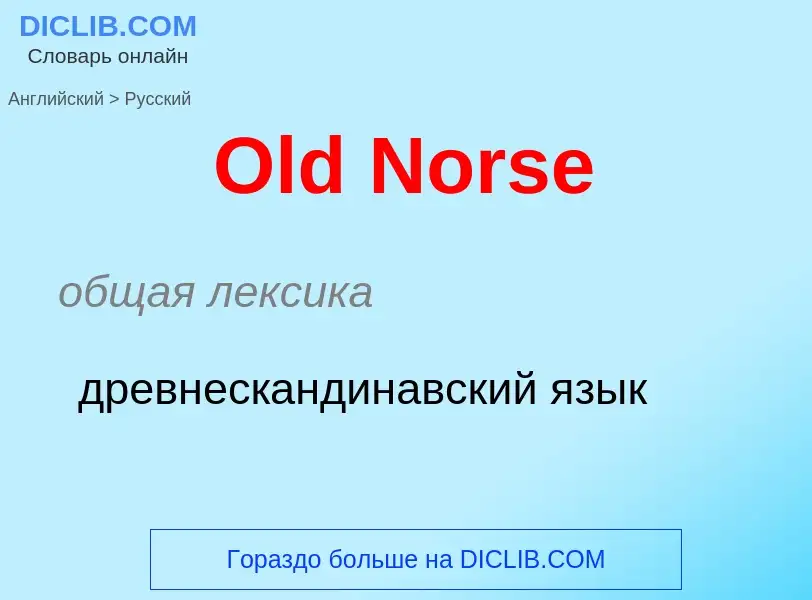Translation and analysis of words by ChatGPT artificial intelligence
On this page you can get a detailed analysis of a word or phrase, produced by the best artificial intelligence technology to date:
- how the word is used
- frequency of use
- it is used more often in oral or written speech
- word translation options
- usage examples (several phrases with translation)
- etymology
Old Norse - translation to russian
общая лексика
древнескандинавский язык
Definition
Wikipedia
Old Norse, Old Nordic, or Old Scandinavian, is a stage of development of North Germanic dialects before their final divergence into separate Nordic languages. Old Norse was spoken by inhabitants of Scandinavia and their overseas settlements and chronologically coincides with the Viking Age, the Christianization of Scandinavia and the consolidation of Scandinavian kingdoms from about the 7th to the 15th centuries.
The Proto-Norse language developed into Old Norse by the 8th century, and Old Norse began to develop into the modern North Germanic languages in the mid-to-late 14th century, ending the language phase known as Old Norse. These dates, however, are not absolute, since written Old Norse is found well into the 15th century.
Old Norse was divided into three dialects: Old West Norse or Old West Nordic (often referred to as Old Norse), Old East Norse or Old East Nordic, and Old Gutnish. Old West Norse and Old East Norse formed a dialect continuum, with no clear geographical boundary between them. For example, Old East Norse traits were found in eastern Norway, although Old Norwegian is classified as Old West Norse, and Old West Norse traits were found in western Sweden. Most speakers spoke Old East Norse in what is present-day Denmark and Sweden. Old Gutnish is sometimes included in the Old East Norse dialect due to geographical associations. It developed its own unique features and shared in changes to both other branches.
The 12th-century Icelandic Gray Goose Laws state that Swedes, Norwegians, Icelanders, and Danes spoke the same language, dǫnsk tunga ("Danish tongue"; speakers of Old East Norse would have said dansk tunga). Another term was norrœnt mál ("northern speech"). Today Old Norse has developed into the modern North Germanic languages Icelandic, Faroese, Norwegian, Danish, Swedish, and other North Germanic varieties of which Norwegian, Danish and Swedish retain considerable mutual intelligibility while Icelandic remains the closest to Old Norse.

![The [[Rök runestone]] in [[Östergötland]], Sweden, is the longest surviving source of early Old East Norse. It is inscribed on both sides. The [[Rök runestone]] in [[Östergötland]], Sweden, is the longest surviving source of early Old East Norse. It is inscribed on both sides.](https://commons.wikimedia.org/wiki/Special:FilePath/Rökstenen.jpg?width=200)
